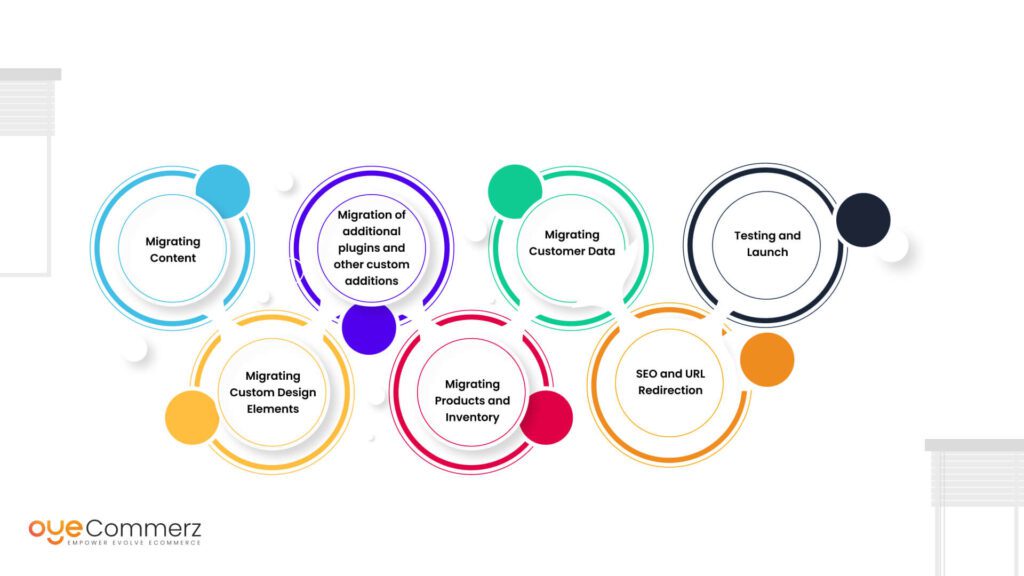In the dynamic world of online retail, picking the best solution is crucial for your brand’s success. If you’re at the moment using WordPress and planning a migration to an alternative, you’re not the only one. Many businesses are shifting to utilize Shopify’s powerful capabilities, simplicity, and growth potential. This guide will walk you through the process of migrating from WP to this platform seamlessly, ensuring that you achieve your online retail potential.
Why Migrate from WordPress to Shopify?
Before starting the migration procedure, it’s important to realize why this change can be helpful for your digital storefront:
Accessible Tools: Shopify offers an intuitive dashboard that simplifies store management, enabling for non-technical users.
Growth Potential: As your brand develops, Shopify can accommodate increased traffic and sales without affecting speed.
All-in-One Solutions: Shopify includes integrated resources for search engine optimization, analytics, payment management, and much more, minimizing the requirement for multiple plugins.
Enhanced Security: With Shopify, you get access to strong security measures that secure confidential customer information.
Steps for a Seamless Migration
Migrating your digital shop from WordPress to Shopify involves several steps.
Here’s how to achieve a smooth transition:
Outline Your Migration Approach
Kick-off by drafting your migration strategy. Identify which components of your present site you wish to migrate, such as:
Product data
Customer information
Purchase logs
Articles
Choose the Right Migration Solution
Based on your preferences, opt for a migration service that suits your store. OyeCommerz delivers several options:
Entry-Level Plan: Ideal for boutique stores with minimal products.
Regular Option: Recommended for growing businesses with intermediate demands.
Advanced Plan: Excellent for high-volume stores needing broad customization.
Save Your Content
Before beginning the migration, guarantee that you have a comprehensive archive of your WordPress site. This action is critical in case anything goes awry during the migration.
Retrieve Your Information from WordPress
Utilize plugins or manual methods to export essential content from your WordPress site:
Products
Users
Sales records
Articles
Import Data into Shopify
After you have your content exported, use Shopify’s import tools or external apps to transfer your data into your Shopify store. Confirm that all information is accurately structured and arranged.
Customize Your Shopify Store
Once uploading information, adjust your Shopify site’s theme to align with your style. Look into hiring a specialist if you need complex customization.
Establish Payment Gateways and Logistics
Set up billing solutions and delivery choices in Shopify to ensure a user-friendly checkout experience for customers.
Adopt Search Engine Optimization Standards
To preserve your search engine rankings during the change:
Set up 301 URL mappings from old URLs to new ones.
Refresh meta tags.
Adjust media and text for better ranking.
Test Your Updated Platform
Prior to going live, completely review your migrated site. Check for any broken links, transaction errors, or untransferred content.
Go Live Your Platform
When everything is in order, it’s the opportunity to launch! Inform the transition to your clients and encourage them to experience the updated capabilities of your Shopify store.
Post-Migration Assistance
Post publishing your new store, continued support is important. Think about engaging professionals who can assist with:
Troubleshooting
Promotional campaigns
Improvement strategies
Conclusion
Migrating from WordPress to Shopify can be a game-changing step for your online retail. By following this guide and utilizing professional services like those offered by dedicated providers, you can achieve a seamless transition that improves your built-in Shopify tools online Shopify store management tools presence. Accept the opportunity and discover the potential of Shopify today!
